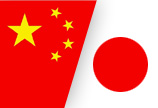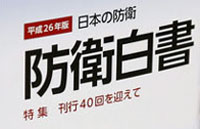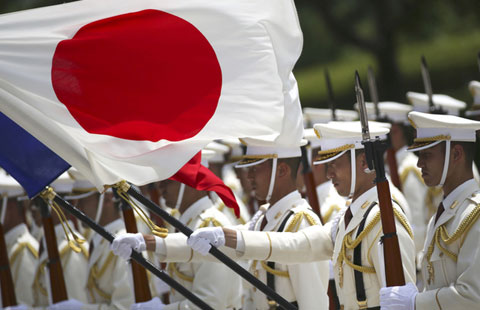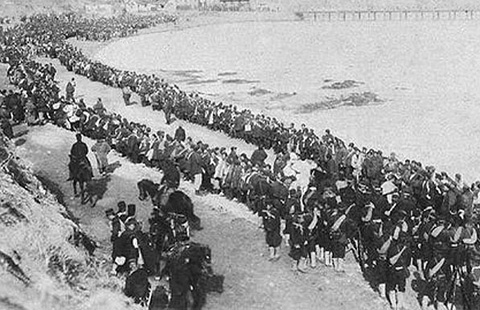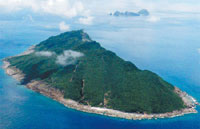Japan's criticism of Chinese military 'ill-founded'
[2014-08-11 14:04]Ministry of National Defense spokesman says Japan's defense white paper "plays the same old tune by making presumptuous comments" about China's military development.
Japanese threw Chinese into furnaces during WWII
[2014-08-08 09:31]Japanese authorities killed sick Chinese miners by throwing them into iron ore furnaces during World War II, according to the latest in a series of publications of confessions by Japanese war criminals.
Timing, wording of Japan's defense white paper raise serious questions
[2014-08-06 07:03]The timing of the release of Japan's defense white paper, just one day before the anniversary of the dropping of the first atomic bomb on Hiroshima, may raise a few eyebrows.
China stands firm against Japanese defense paper
[2014-08-06 07:02]Japan is "deliberately hyping the threat from China, seeking excuses for its military and security policy maneuvers as well as its armaments expansion", said Chinese defense ministry.
Japan approves defense white paper for 2014
[2014-08-05 14:11]The Japanese government has recently provoked disputes on historical issues and made unprecedented dramatic changes to its security policy, Chinese Foreign Ministry spokesman says.
Written confessions of Japanese war criminals
[2014-08-05 06:50]Editor's note: To offer a clearer picture of history, the State Archives Administration released a large number of files on 45 Japanese war criminals who were tried and convicted in China after World War II. The special military tribunal of the Supreme People's Court held public trials, sentencing the criminals to between eight and 20 years in prison. China Daily is publishing abstracts of the criminals' confessions.
Japan's naming farce can't change Diaoyu's sovereignty
[2014-08-04 14:08]In a move that certainly angered China, Japan announced Friday that it gave names to 158 remote islets, including five islets belonging to China's Diaoyu Islands in the East China Sea.
Shenyang exhibits Sino-Japanese War map
[2014-08-04 11:26]The Chinese city of Shenyang, capital of northeast China's Liaoning Province, has exhibited a map drawn by the Japanese army during the 1894 and 1895 Sino-Japanese war.
Japan's naming of islands adds to lingering tension
[2014-08-02 07:52]The Foreign Ministry said Japan's unilateral decision to name China's Diaoyu Islands was "invalid" as it persisted in fueling lingering territorial tensions.
Apologizing for atrocities
[2014-07-30 08:04]Calls are growing for Japan to take full responsibility for its 'comfort women' sex crimes during the war.
Abe's policy shift against historical trend: Japanese expert
[2014-07-28 20:35]Prime Minister Shinzo Abe's policies threaten the peace of Japan and lead the country down a dangerous path, a Japanese expert warned Saturday.
Report: Japan's military buildup cause for worry
[2014-07-24 07:12]Think tank's assessment points to 'unprecedented breakthroughs'
